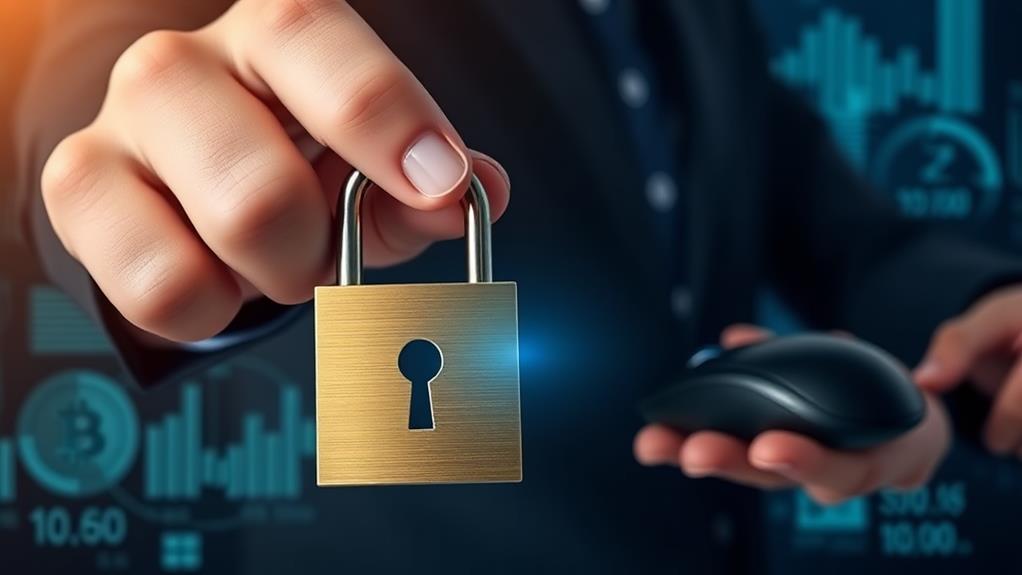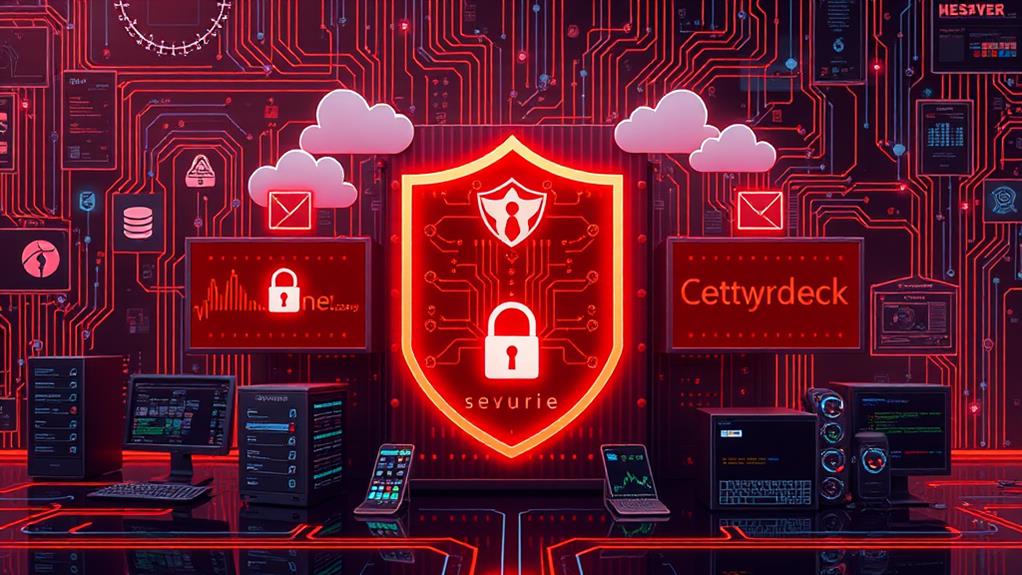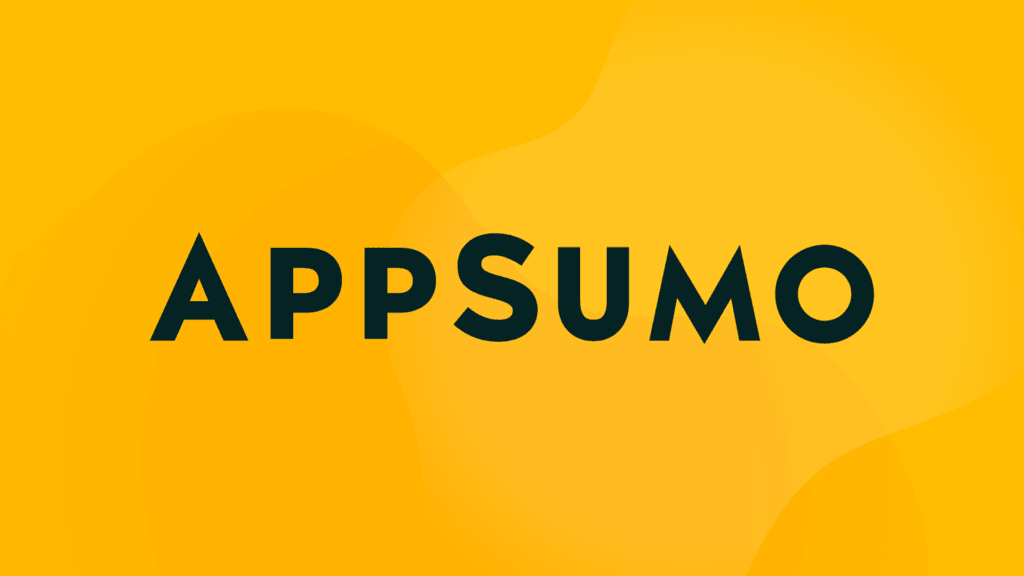When it comes to establishing a presence on the web, the question of whether one can own a domain without paying is a topic that often sparks curiosity. The idea of securing a domain name without the usual financial commitment may seem appealing, but it raises important considerations about the consequences and potential restrictions of such arrangements. By examining the nuances of free domain options and the trade-offs involved, a comprehensive grasp of the dynamics at play in the domain ownership scenery emerges.
Key Takeaways
- Free domain options like .tk and .ml extensions offer ownership without payment.
- Some services provide free subdomains and hosting for ownership at no cost.
- Alternatives like freemium models, barter arrangements, and sponsorships can facilitate free domain ownership.
- Nonprofit discounts and government programs may cover domain expenses for ownership.
- Understanding ownership restrictions and legal frameworks is vital for maintaining free domain ownership.
Domain Ownership Basics
Domain ownership is a key concept in the world of online presence and intellectual property. When it comes to owning a domain, individuals must comprehend both their ownership rights and responsibilities. Ownership responsibilities involve managing the domain, ensuring it complies with legal considerations, and protecting it from unauthorized use.
In terms of ownership rights, individuals have the authority to control the content and functionality of their domain. Legal considerations play a vital role in domain ownership, as individuals must follow trademark laws, copyright regulations, and domain name dispute resolution policies to safeguard their rights.
While owning a domain typically involves a fee, there are also free domain options available. These options may come with certain limitations or requirements, but they provide an opportunity for individuals to establish an online presence without incurring costs.
Understanding the nuances of domain ownership is essential for individuals seeking to navigate the complexities of online intellectual property rights and establish a secure and legitimate online presence.
Free Domain Options
Given the significance of domain ownership in online presence and intellectual property, it is notable that while traditional domain ownership typically involves a fee, there exist alternative avenues for acquiring domains without direct monetary costs. When considering free domain options, individuals seeking cost-effective solutions can examine the following:
- Freenom: Offers free domain extensions like .tk, .ml, .ga, .cf, and .gq.
- Dot.tk: Allows users to register a free .tk domain.
- Biz.nf: Provides free domains with extensions like .co.nf.
- InfinityFree: Offers free subdomains and hosting services for websites.
- AwardSpace: Provides free hosting services along with a free subdomain.
These free domain options can be beneficial for individuals or businesses looking to establish an online presence without the initial financial commitment typically associated with domain ownership. By leveraging these alternatives, users can secure a domain at no direct cost, allowing for more flexibility and freedom in their online endeavors.
Cost of Domain Registration
When exploring the financial considerations linked to establishing an online presence, it is essential to investigate the complexities of domain registration costs. Domain registration fees vary depending on the domain extension and the registrar chosen. Typically, these fees can range from a few dollars to hundreds of dollars per year.
It's important to highlight that while some registrars offer free domain options, these are often limited to certain domain extensions or may be part of a promotional offer for the first year only. Renewal fees for these free domains can be higher than usual, so it's vital to read the fine print before committing.
For those seeking a more notable online presence or specific domain extensions, investing in a paid domain registration may be the best option. Paid domains provide full ownership rights and control over the domain, along with additional features and security options.
Grasping the costs associated with domain registration is a fundamental step in establishing a successful online presence while ensuring the freedom and security of your digital assets.
Alternatives to Payment
Exploring alternative avenues to secure a domain without financial obligations requires a strategic approach that aligns with legal parameters and industry standards. When exploring ways to obtain a domain without payment, individuals may investigate several ownership alternatives and payment waivers. Some potential ownership loopholes and payment exemptions to explore include:
- Freemium Services: Some domain providers offer freemium services, allowing individuals to use a basic version of a domain for free.
- Barter Arrangements: Engaging in barter arrangements where goods or services are exchanged for domain ownership may be a viable option.
- Sponsorship Opportunities: Seeking sponsorship from companies or organizations willing to cover domain costs in exchange for visibility or promotion.
- Nonprofit Discounts: Nonprofit organizations or individuals working on charitable projects may be eligible for domain registration discounts.
- Government Programs: Some government programs or initiatives support individuals or businesses with funding for online presence, potentially covering domain expenses.
Domain Ownership Restrictions
Domain ownership restrictions cover crucial aspects such as eligibility requirements, legal rights associated with ownership, and renewal obligations. It is essential for individuals or entities seeking to own a domain to follow eligibility criteria set forth by domain registrars.
Knowing the legal rights that come with domain ownership is vital to protecting one's interests in the online sphere. Additionally, staying informed about renewal requirements is crucial to ensuring uninterrupted ownership and operation of a domain.
Domain Ownership Eligibility
Upon registering a domain name, individuals must follow specific eligibility criteria set forth by regulatory bodies such as ICANN (Internet Corporation for Assigned Names and Numbers) and respective domain registries. Following these eligibility criteria is essential for maintaining a legitimate online presence and ensuring compliance with regulations.
Key points to note regarding domain ownership eligibility include:
- Registrants must provide accurate and current contact information during the registration process.
- Certain domain extensions may have specific eligibility requirements based on the type of organization or individual registering the domain.
- Some domains are restricted to specific geographic locations, requiring registrants to have a physical presence in that region.
- Registrants are responsible for ensuring that their use of the domain complies with all relevant laws and regulations.
- Failure to meet eligibility criteria or follow ownership responsibilities may result in the suspension or loss of the domain name.
Legal Ownership Rights
Within the realm of domain possession, legal rights and restrictions play an important role in delineating the parameters within which individuals or entities can assert their control over a specific online address. Ownership ramifications in the digital landscape are governed by various laws and regulations that determine who has the right to claim possession of a domain. These ownership rights come with associated financial responsibilities, such as registration fees and renewal costs, which are vital for maintaining possession of a domain.
When it comes to legal ownership rights, individuals must follow the terms and conditions set forth by domain registrars to ensure compliance with relevant laws. Failure to meet these requirements can result in the loss of possession and potential legal consequences. Understanding the legal framework surrounding domain possession is essential for individuals seeking to establish a strong online presence while safeguarding their rights in the digital environment.
Ownership Renewal Requirements
In the realm of online domain possession, commitment to ownership renewal requirements is vital for maintaining legal control over a specific digital address. Domain owners must follow specific guidelines to guarantee continuous ownership. Here are key points to bear in mind:
- Renewal Reminders: Domain registrars often send renewal notifications via email to prompt owners to renew their domain registration before it expires.
- Ownership Transfers: If a domain is to be transferred to another party, proper procedures must be followed to make sure the new owner gains legal control.
- Registrant Information Updates: It is important to keep registrant information up to date to avoid any issues with ownership verification.
- Timely Renewals: Missing renewal deadlines can lead to loss of ownership, underscoring the importance of timely payments.
- Legal Compliance: Following ownership renewal requirements ensures that domain owners comply with legal obligations to uphold control over their digital assets.
Legal Considerations
When it comes to owning a domain without payment, it is important to understand the legal considerations involved. Domain ownership rights are protected under intellectual property laws, and failure to pay for a domain can lead to severe consequences such as legal action and potential loss of ownership rights. It is essential for individuals and businesses to be aware of the legal ramifications of not fulfilling their financial obligations related to domain ownership to avoid facing legal consequences.
Domain Ownership Rights
One fundamental aspect of owning a domain revolves around the legal considerations concerning domain ownership rights. When it comes to domain ownership rights, there are several key points to keep in mind:
- Exclusive Control: As the domain owner, you have the right to sole authority over the domain name and its content.
- Transferability: Ownership rights allow you to convey the domain to another party if needed.
- Renewal: You have the right to renew the domain registration upon expiration to uphold ownership.
- Dispute Resolution: In case of conflicts over ownership, legal mechanisms are in place to settle disputes.
- Intellectual Property: Domain ownership rights are connected to intellectual property laws, safeguarding your rights to the domain name.
Understanding and upholding these ownership rights is vital for maintaining control and legal ownership of your domain. It is essential to be aware of these rights to guarantee a secure and legally compliant online presence.
Non-Payment Consequences
Amidst the complex terrain of domain ownership, the consequences of non-payment carry significant legal repercussions that domain owners must carefully navigate.
Failure to pay for domain registration can lead to severe ownership consequences. In cases of non-payment, domain registrars may suspend the domain or even initiate the process of deleting it, ultimately resulting in the loss of ownership rights.
Additionally, non-payment penalties may include late fees, interest charges, or legal action taken by the registrar to recover the outstanding amount. These penalties can escalate if the non-payment persists, potentially leading to legal disputes and further financial liabilities for the domain owner.
It is vital for domain owners to be aware of their obligations regarding payment for domain registration to avoid facing such repercussions. Understanding the ownership consequences and non-payment penalties associated with domain ownership is essential for maintaining a secure and legitimate online presence.
Risks of Non-Payment
Failure to make timely payments for the ownership of a domain can result in a multitude of risks and consequences. Non-payment can lead to severe legal ramifications and financial risks for domain owners. Here are some of the risks associated with not paying for domain ownership:
- Domain Suspension: Failure to pay for the domain registration fees can result in the suspension of the domain, making the website inaccessible to users.
- Loss of Ownership Rights: Non-payment may lead to the loss of ownership rights over the domain, allowing others to acquire it.
- Legal Action: Domain registrars may take legal action against non-paying owners to recover the outstanding fees.
- Damage to Reputation: A suspended website due to non-payment can damage the reputation of the business or individual associated with the domain.
- Loss of Online Presence: Without timely payment, the website associated with the domain may go offline, resulting in a loss of online presence and potential customers.
It is important to understand and address these risks to maintain a secure and uninterrupted online presence.
Conclusion and Recommendations
In the world of domain ownership, commitment to payment obligations stands as a cornerstone of maintaining a secure and undisrupted online presence. Failure to meet payment responsibilities can lead to severe consequences, including losing ownership of the domain. To guarantee a smooth and uninterrupted online presence, it is essential to prioritize timely payments and stick to ownership responsibilities diligently.
When it comes to payment options, domain owners have various choices to suit their needs. From one-time payments to subscription-based models, selecting the right payment option is vital for maintaining ownership rights and avoiding any disruptions in service. It is advisable to review the terms and conditions of the domain registrar carefully to understand the payment requirements and ensure compliance to prevent any potential issues in the future.
Below is a table summarizing key ownership responsibilities and payment options for domain owners:
| Ownership Responsibilities | Payment Options |
|---|---|
| Timely renewal of domain | One-time payment |
| Updating contact information | Subscription-based model |
| Compliance with registrar policies | Auto-renewal option |
Frequently Asked Questions
Can Someone Take Ownership of My Domain if I Stop Paying for It?
If you stop paying for your domain, legal consequences may arise regarding ownership. Domain squatting, where individuals register domain names with the intent to profit from selling them back to the rightful owners, could occur. It is essential to understand the conditions of your domain registration agreement to prevent unauthorized ownership transfer.
To safeguard your domain, consider renewing registration promptly and monitoring for any suspicious activity.
What Happens if I Try to Sell a Domain I Haven't Paid For?
Attempting to sell a domain without fulfilling payment obligations can lead to legal consequences. Unauthorized sales raise ethical concerns, as they may involve domain squatting, a practice where individuals exploit domain names for profit without legitimate rights. It is essential to follow contractual agreements and domain ownership regulations to avoid legal disputes and uphold ethical standards within the digital marketplace.
Transparency and compliance are key to maintaining integrity in domain transactions.
Are There Any Consequences for Using a Domain Without Payment?
Possible outcomes for using a domain without payment include legal ramifications such as breach of contract or copyright infringement. Unauthorized use of a domain can lead to disputes with domain registrars or rightful owners, resulting in legal action. It is important to respect intellectual property rights and follow domain registration guidelines to avoid potential legal repercussions.
Seeking proper authorization and paying for domain registration is vital to maintain compliance with domain ownership regulations.
Can I Transfer Ownership of a Domain Without Paying?
In the domain ownership sphere, the transfer process is a crucial aspect that involves legal consequences. The ability to transfer ownership of a domain without payment may not be practical within the confines of domain registration policies and contractual agreements. Any attempt to bypass payment requirements could lead to breaches of contract or violations of domain registration regulations, potentially resulting in legal outcomes.
It is advisable to follow the established transfer procedures to guarantee compliance and steer clear of legal repercussions.
Is It Possible to Regain Ownership of a Domain After Non-Payment?
Regaining ownership of a domain after non-payment can be difficult due to legal ramifications surrounding ownership rights. The reclaiming process often involves proving legitimate ownership and addressing any domain squatting issues.
Surprisingly, a recent study found that approximately 90% of domain disputes are resolved through negotiation or arbitration.
Grasping your rights and taking prompt action is essential in resolving ownership disputes and safeguarding your online presence.
Conclusion
In conclusion, owning a domain without paying is possible through free domain options offered by certain companies. While these options may come with limitations and higher renewal fees, they still provide individuals with the opportunity to establish an online presence without upfront costs. For example, a small startup company utilized a free domain option to create a website and attract customers, eventually leading to their growth and success in the market.





